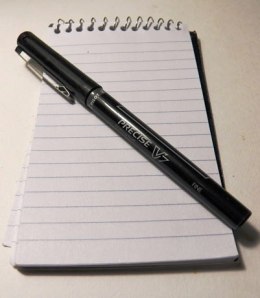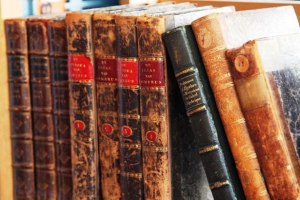Start Write Here
Posted: April 10, 2013 Filed under: Writing | Tags: Elmore Leonard, Eric Clapton, Fiction writing, Writer, Writing process 5 Comments I was asked recently to give my observations about writing–particularly writing fiction. I decided to adapt my notes into an article aimed at those who are contemplating writing as a hobby or vocation. Let me begin by stating that I’m no expert. I have no significant credentials other than a couple of novels and several essays. But I believe my experience is not atypical when it comes to getting started as a writer.
I was asked recently to give my observations about writing–particularly writing fiction. I decided to adapt my notes into an article aimed at those who are contemplating writing as a hobby or vocation. Let me begin by stating that I’m no expert. I have no significant credentials other than a couple of novels and several essays. But I believe my experience is not atypical when it comes to getting started as a writer.
What I know about writing I have learned mostly by doing it–and then re-doing it–and then changing it–and then hitting the delete key and starting over. I suspect that’s how most people do it. That is not to say I haven’t read a lot about writing, talked to other writers, attended workshops and endured many humbling critiques along the way, but that’s where to start–you write something.
Writing is a lot like other disciplines. It’s part art and part science. The thing that attracts us to writing–and to reading for that matter–is the art part. Art is creation, expression, style and voice.
I think part of what it means to be created in God’s image is that we have been equipped to create–on a much smaller scale, of course. Writing is one way to create. A story is a kind of creation. Even in non-fiction the writer is conveying some kind of story to the reader, whether it’s the biography of someone’s life or a roadmap to success in business. In fiction we might create a whole world and then create people to walk around in it. We create events and conversations. There is something naturally gratifying about that creative process, that art.
On the other hand, good writing has an element of science. By science, I mean that technical aspect we might refer to as skill. Talent may be innate, but skill is learned. I play the guitar a little. I was actually accused once of being a musician, but they never could come up with enough evidence to convict me. Nevertheless, I can listen to Eric Clapton play a blues song and then learn to play all the same notes, but it never sounds the same when I play it. I figured out why. It isn’t the notes he plays, it’s the way he transitions between them, how he starts and finishes the notes with a bend or vibrato–emphasizing some and blending others. It isn’t something that is really noticeable unless it’s missing. It’s a skill; it’s science added to his art. And it makes all the difference in the end result. Both the art and the science have to be developed. Those with natural talent may need to work more on the skill than on the art. Some are more technically proficient and need to work more on the creation than on the structure. But every writer has to address both.
 One of the most important things a person must do if he or she wants to be a writer is to first be a reader. Reading is the best way to develop both the art and science of writing. Read–and then read some more. Why is reading so important? On the art side, reading helps us learn to recognize good writing–or bad. We read to “HEAR” how other people write. We read to get a feel for language use, description and dialog. Writers have a voice. Some, like Hemingway, are known for short sentences and terse dialog. Some, like Faulkner, are known for very long, descriptive sentences. Some are known for expressing detail or witty dialog. Reading other voices helps us recognize and develop our own.
One of the most important things a person must do if he or she wants to be a writer is to first be a reader. Reading is the best way to develop both the art and science of writing. Read–and then read some more. Why is reading so important? On the art side, reading helps us learn to recognize good writing–or bad. We read to “HEAR” how other people write. We read to get a feel for language use, description and dialog. Writers have a voice. Some, like Hemingway, are known for short sentences and terse dialog. Some, like Faulkner, are known for very long, descriptive sentences. Some are known for expressing detail or witty dialog. Reading other voices helps us recognize and develop our own.
On the science or skill side, we read to learn the subject matter, for research, for writing techniques and do’s and don’ts. We read for structure, grammar, vocabulary, use of active or passive voice, even punctuation. Read the rest of this entry »







